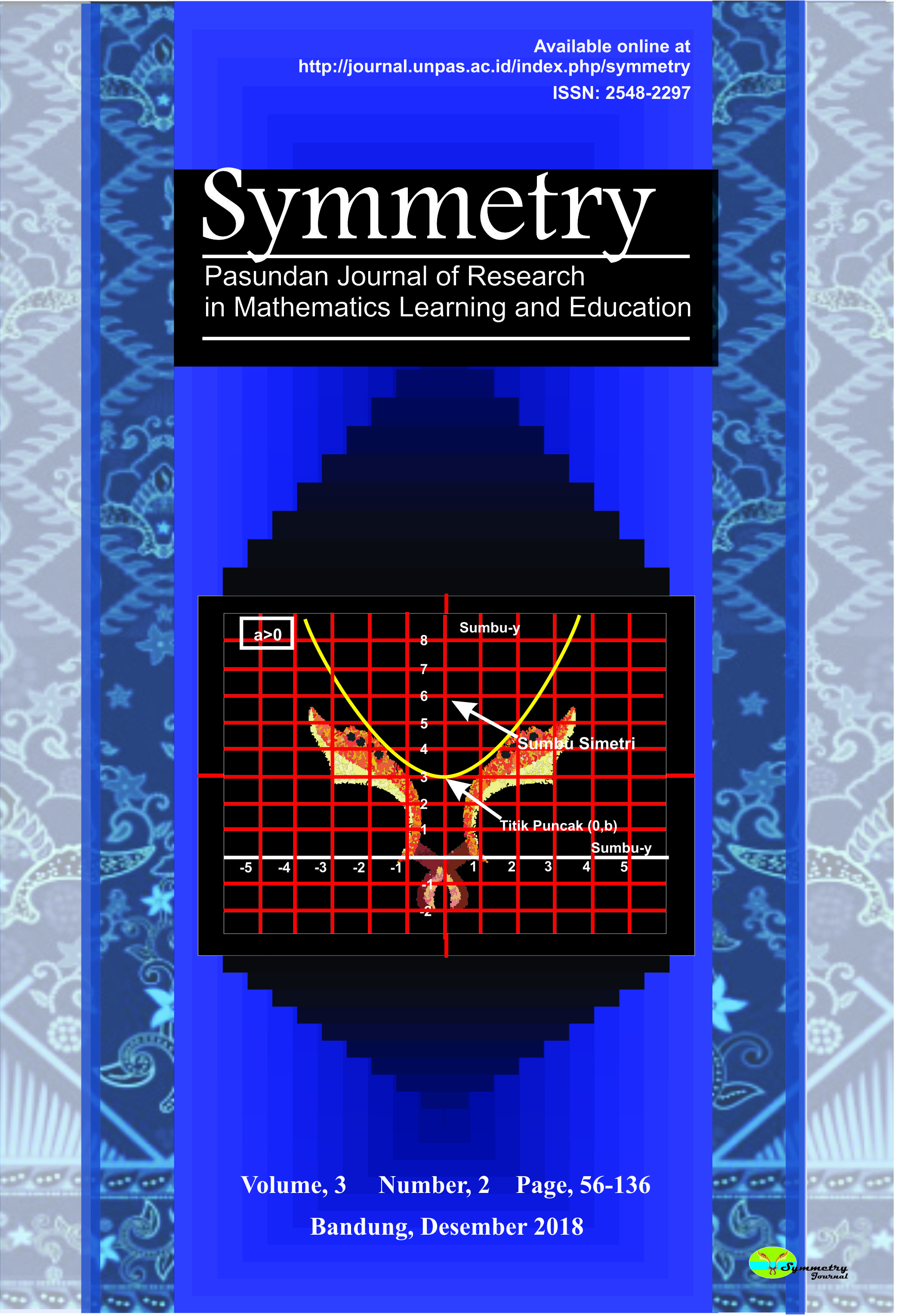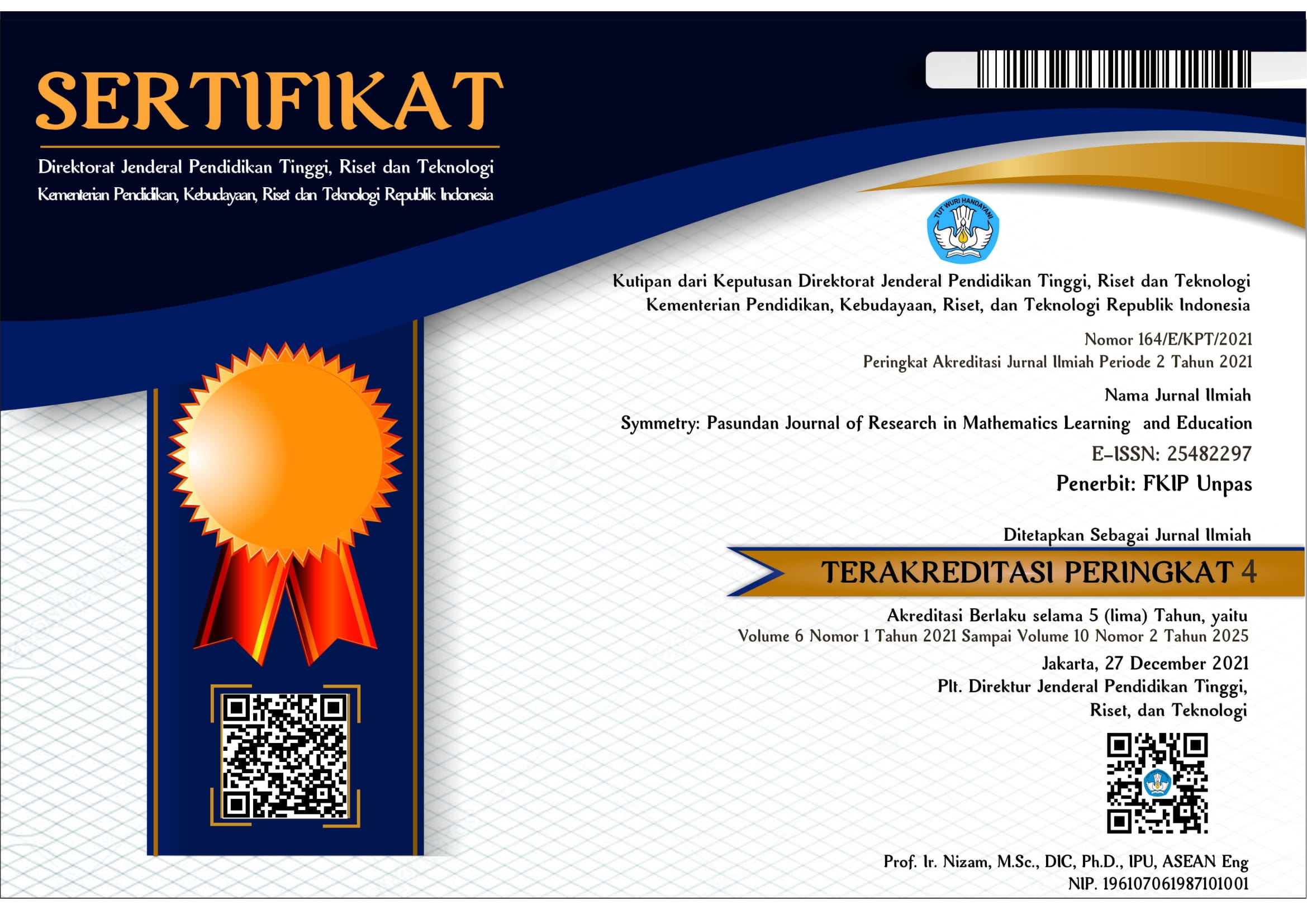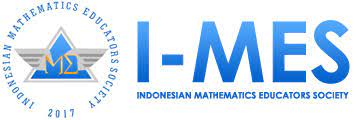THE ABILITY OF MATHEMATICS TEACHERS IN USING COMPUTERS, SMARTPHONES, AND INTERNET
DOI:
https://doi.org/10.23969/symmetry.v6i1.3999Abstract
This study aimed to determine the ability of mathematics teachers to use computers, smartphones, and the internet according to their birth years (generation) and gender. The ability of teachers to use computers, smartphones, and the internet is beneficial to support mathematics learning using information and communication technologies. The research method was mixed research by surveying 92 mathematics teachers, 35 junior high school mathematics teachers, and 57 high school mathematics teachers in West Java. The results show that: (1) the ability of mathematics teachers in using computers, smartphones, and the internet has supported the application of technology-based learning in mathematics learning; (2) there are differences in the ability to use computers, smartphones, and the internet among the X, Y and Z generation of mathematics teachers. The ability in using computers, smartphones, and the internet of the Y and Z generation of mathematics teachers is better than that the of X generation; (3) there are differences in the ability in using computers, smartphones, and the internet between male and female teachers; male teachers are better than female teachers; (4) there is no significant difference in the ability in using computers, smartphones and internet between mathematics teachers at the high school and junior high school levels; (5) there is no interaction effect between teacher generations and levels of educational institution, on their achievement of the abilities in using computers, smartphones, and the internet
Downloads
References
Abdussakir. (2013). Penggunaan Komputer Untuk Pembelajaran Matematika. Madrasah, 5(2), 117–133. https://doi.org/10.18860/jt.v2i2.1439
Alias, M. (2009). Integrating technology into classroom instructions for reduced misconceptions in statistics. International Electronic Journal of Mathematics Education, 4(2), 77–91.
Alkhateeb, M. A., & Al-Duwairi, A. M. (2019). The Effect of Using Mobile Applications (GeoGebra and Sketchpad) on the Students’ Achievement. International Electronic Journal of Mathematics Education, 14(3), 523–533. https://doi.org/10.29333/iejme/5754
Asmaranti, W., & Andayani, S. (2018). Mengapa Media Berbasis Komputer dalam Pembelajaran Matematika Penting? Perspektif Guru dan Siswa. 6(2), 146–157. https://doi.org/10.21831/jpms.v6i2.23958
Bagon, Š., Gačnik, M., & Starčič, A. I. (2018). Information communication technology use among students in inclusive classrooms. International Journal of Emerging Technologies in Learning, 13(6), 56–72. https://doi.org/10.3991/ijet.v13i06.8051
Chua, J. H., & Jamil, H. (2014). The Effect of Field Specialization Variation on Technological Pedagogical Content Knowledge (TPACK) among Malaysian TVET Instructors. Malaysia Online Journal of Educational Technology, 2(1), 36–44.
Dirgantoro, K. P. S. (2018). Kompetensi Guru Matematika Dalam Mengembangkan Kompetensi Matematis Siswa. Scholaria: Jurnal Pendidikan Dan Kebudayaan, 8(2), 157–166. https://doi.org/10.24246/j.js.2018.v8.i2.p157-166
Drigas, A. S., & Pappas, M. A. (2015). A review of mobile learning applications for mathematics. International Journal of Interactive Mobile Technologies, 9(3), 18–23. https://doi.org/10.3991/ijim.v9i3.4420
Ghavifekr, S., & Rosdy, W. A. W. (2015). Teaching and Learning with Technology: Effectiveness of ICT Integration in Schools. International Journal of Research in Education and Science, 1(2), 175–191. https://doi.org/10.21890/ijres.23596
Kapustina, T. V., Popyrin, A. V., & Savina, L. N. (2015). Computer support of interdisciplinary communication of analytic geometry and algebra. International Electronic Journal of Mathematics Education, 10(3), 177–187. https://doi.org/10.12973/mathedu.2015.113a
Marbán, J. M., & Mulenga, E. M. (2019). Pre-service Primary Teachers’ Teaching Styles and Attitudes towards the Use of Technology in Mathematics Classrooms. International Electronic Journal of Mathematics Education, 14(2), 253–263. https://doi.org/10.29333/iejme/5649
Marzal, J. (2013). Pengembangan Skill dan Kompetensi TIK Guru Matematika dan IPA Kota Jambi melalui E-Tutorial Berbasis Kebutuhan Guru (Teacher’s Need). Tekno-Pedagogi, 3(1), 28–41. https://doi.org/10.1021/cr00044a004
Meggiolaro, S. (2018). Information and communication technologies use gender and mathematics achievement: evidence from Italy. Social Psychology of Education, 21(2), 497–516. https://doi.org/10.1007/s11218-017-9425-7
Ozudogru, M., & Ozudogru, F. (2019). Technological pedagogical content knowledge of mathematics teachers and the effect of demographic variables. Contemporary Educational Technology, 10(1), 1–24. https://doi.org/10.30935/cet.512515
Perdani, H. N., & Azka, R. (2019). Teknologi dan Pembelajaran Matematika Generasi Milenial. Proseding Sendika, 5(1), 508–514.
Ruiz-Jaramillo, J., & Vargas-Yáñez, A. (2018). Teaching structures on Architecture degrees. ICT-based methodology and teaching innovation. Revista Espanola de Pedagogia, 76(270), 353–372. https://doi.org/10.22550/REP76-2-2018-08
Salas-Rueda, R.-A. (2019). TPACK: Technological, Pedagogical and Content Model Necessary to Improve the Educational Process on Mathematics through a Web Application? International Electronic Journal of Mathematics Education, 1(1), 1–13. https://doi.org/10.29333/iejme/5887
Sincuba, M. C., & John, M. (2017). An Exploration of Learners’ Attitudes towards Mobile Learning Technology-Based Instruction Module and its Use in Mathematics Education. International Electronic Journal of Mathematics Education, 12(3), 845–858. Retrieved from http://www.iejme.com/download/an-exploration-of-learners-attitudes-towards-mobile-learning-technology-based-instruction-module-and.pdf
Supianti, I. I. (2018). Pemanfataan Teknologi Informasi dan Komunikasi ( TIK ) dalam Pembelajaran Matematika. Mendidik: Jurnal Kajian Pendidikan Dan Pengajaran, 4(1), 63–70. https://doi.org/10.30653/003.201841.44
Supianti, I. I., Wahyudin, Kartasasmita, B. G., & Nurlaelah, E. (2018a). Perspektif siswa atas penerapan teknologi informasi dan komunikasi (tik) dalam pembelajaran matematika. Seminar Nasional Pendidikan Matematika Dan Workshop Penyusunan Instrumen Hihg Order Thinking Skills (HOTS), (November), 124–130.
Supianti, I. I., Wahyudin, Kartasasmita, B. G., & Nurlaelah, E. (2018b). Teachers' Perspective on The Application of Information and Communication Technology (ICT) in Mathematics Learning. Journal of Physics: Conference Series, 2019(1321), 1–5. https://doi.org/10.1088/1742-6596/1321/2/022107
Syukur, I. A. (2014). Profesionalisme Guru dalam Mengimplementasikan Teknologi Informasi dan Komunikasi di Kabupaten Nganjuk. Jurnal Pendidikan Dan Kebudayaan, 20(2), 200–2010. https://doi.org/10.24832/jpnk.v20i2.138
Taleb, Z., Ahmadi, A., & Musavi, M. (2015). The effect of m-learning on mathematics learning. Procedia - Social and Behavioral Sciences, 171, 83–89. https://doi.org/10.1016/j.sbspro.2015.01.092
Umbara, U., Munir, M., Susilana, R., & Puadi, E. F. W. (2019). Increase Representation in Mathematics Classes: Effects of Computer Assisted Instruction Development with Hippo Animator. International Electronic Journal of Mathematics Education, 15(2). https://doi.org/10.29333/iejme/6262
Uslu, Ö. (2018). Factors associated with technology integration to improve instructional abilities: A path model. Australian Journal of Teacher Education, 43(4), 31–50. https://doi.org/10.14221/ajte.2018v43n4.3
Valeev, A. A., Latypova, L. A., & Latypov, N. R. (2016). The use of interactive learning technologies in teaching a foreign language in high school. Mathematics Education, 11(6), 1773–1785.
Wibowo, Wahyu; Haryatmi, Sri; Budiantara, I. N. (2009). Seminar Nasional Matematika dan Pendidikan Matematika Jurusan Pendidikan Matematika FMIPA UNY, 5 Desember 2009. Penggunaan Pembelajaran Inkuiri Dalam Mengembangkan Kemampuan Berpikir Kreatif Siswa Sma Di Kota Bengkulu, 978–979.
Downloads
Published
Issue
Section
License
Hak Cipta sepenuhnya ditangan jurnal.




















